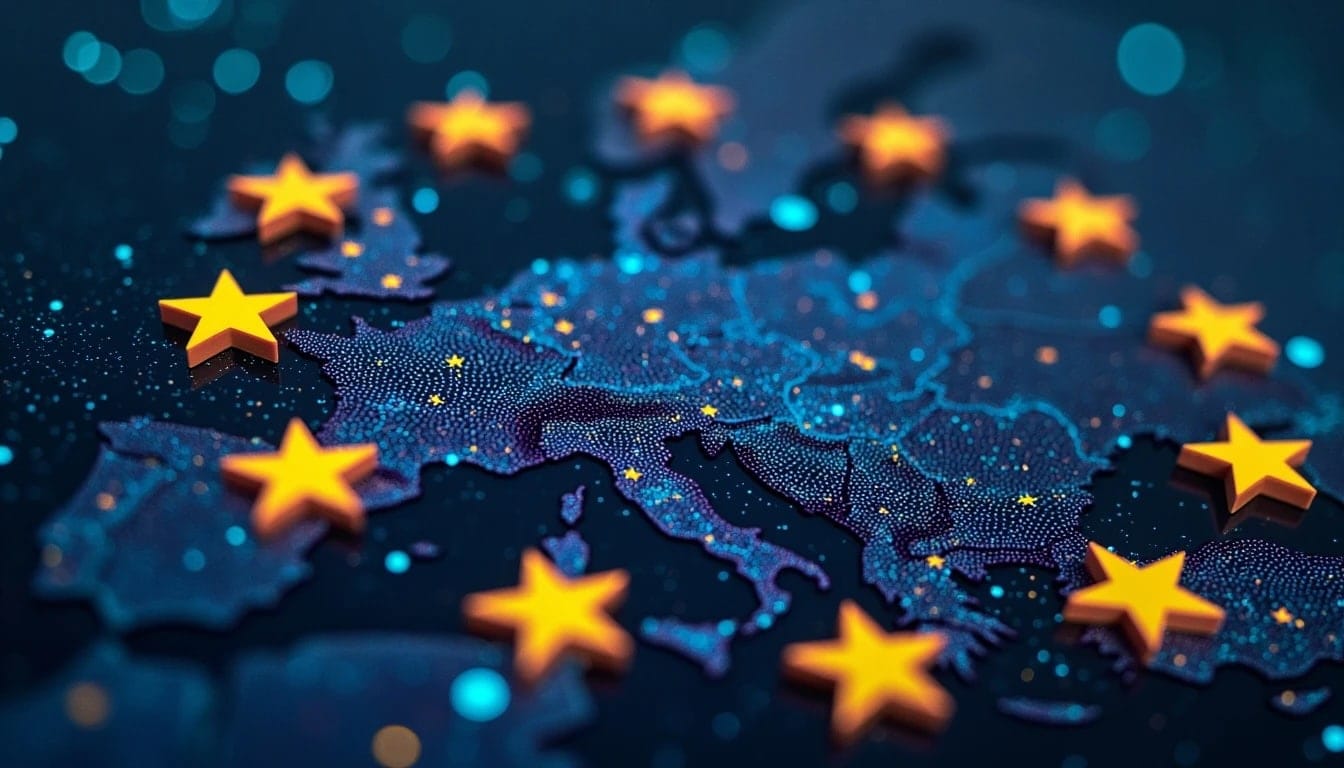The EuroStack manifesto proposes an independent European tech ecosystem in the face of U.S. and Chinese dominance.
At a crucial moment for Europe’s digital future, over 80 leading tech companies have raised their voices to call for a strategic shift in the European Union’s digital policies. Through an open letter addressed to Ursula von der Leyen, President of the European Commission, and Henna Virkkunen, a tech-savvy Member of the European Parliament, the signatories propose the creation of EuroStack, a comprehensive ecosystem of digital technologies developed and managed on European soil.
This initiative, backed by heavyweights like Airbus, Dassault Systèmes, OVHCloud, Proton, and Tecnalia, stems from a concerning observation: 80% of the digital technology used in Europe is imported, and 70% of the global artificial intelligence models come from the United States. Additionally, only 7% of global software R&D spending takes place in Europe.
A “Buy European” to Reactivate Domestic Demand
The EuroStack manifesto emphasizes that talent and technical capacity exist in Europe, but the demand for local solutions is insufficient. To reverse this trend, it proposes implementing preferential public procurement policies for European products, a “Buy European” initiative that mirrors what other powers are already doing.
Furthermore, it calls for the creation of a Sovereign Infrastructure Fund, equipped with significant resources to support key technologies such as semiconductors, quantum computing, storage, and European networks. The manifesto also demands the standardization of infrastructures and the promotion of interoperability of systems developed on the continent.
Geopolitics and Strategic Urgency
This collective appeal occurs in an international context marked by a growing technological dependence on major U.S. hyperscalers, such as AWS and Google Cloud, whose infrastructures dominate key sectors like cloud services and data storage in Europe.
The report EuroStack – A European Alternative for Digital Sovereignty, led by economist Francesca Bria for the Bertelsmann Stiftung, warns that if Europe does not act urgently, it will definitively lose its digital autonomy. The study estimates that achieving full digital sovereignty will require an investment of at least 300 billion euros by 2035. As a first step, it proposes allocating 10 billion euros to a European technology innovation fund.
“Europe’s sovereignty requires a technological leap. We are importing technologies that erode our values and autonomy. EuroStack is our digital ‘moonshot’ moment,” says Francesca Bria.
An Industrial and Democratic Proposal
Beyond a technical matter, the proponents of EuroStack place the debate in a broader context: the defense of democratic values, citizen privacy, and European security. The proposal envisions a digitalization that aligns with social interests and is not subordinated to external actors.
“We have seen how vulnerable our economies can be when technological and economic interests align outside of Europe. We can no longer afford to simply react. It’s time for Europeans to take control of our digital future,” stated Martin Hullin, director of the Digitalization and the Common Good program at Bertelsmann Stiftung.
Towards a Common European Digital Market
The EuroStack plan is inspired by previous achievements like the single market and the euro, proposing a similar approach: a common digital infrastructure based on shared platforms, standards, and strategies, managed at the European level with a long-term vision.
On March 25, 2025, the University of Amsterdam will host a key meeting to define the next steps for EuroStack. This event will bring together experts, policymakers, and tech companies to advance the construction of a continental strategy that guarantees digital sovereignty and reduces structural dependence on the United States and China.
A Turning Point?
Although the challenge is ambitious, the broad coalition supporting EuroStack indicates that it is not a pipe dream, but a realistic and necessary change. The manifesto calls not only on European institutions but also on companies, startups, universities, and research centers, urging them to actively participate in this transformation.
The key question is whether Europe will be able to overcome political, economic, and cultural barriers to consolidate a sovereign digital ecosystem. For the advocates of EuroStack, the time to act is now: “It’s complicated, but not impossible.”
For more information Euro-Stack Report

